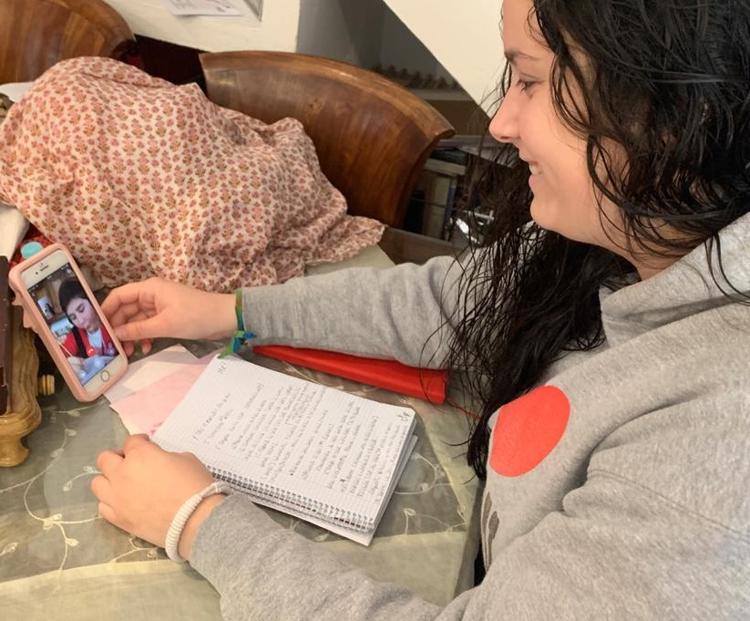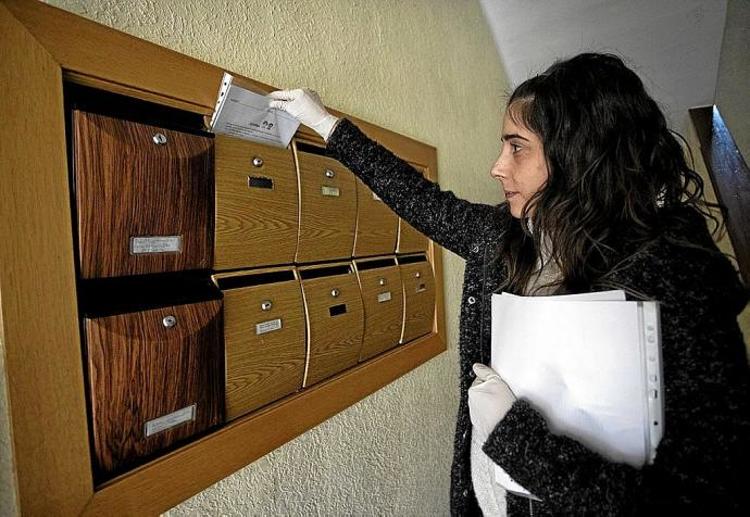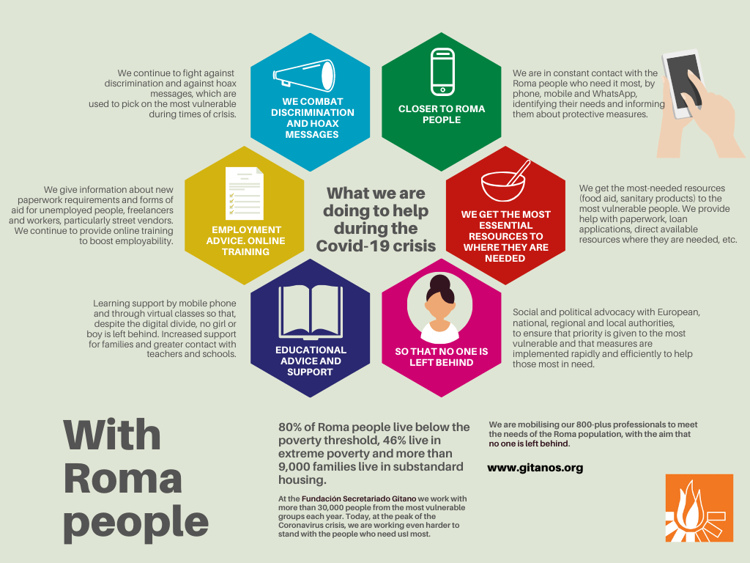07/04/2020
FSG International
Six out of ten Roma girls and boys do not complete compulsory secondary education in Spain. This figure shows the severe educational inequality which existed before the coronavirus crisis. Now, with the Covid-19 pandemic, inequality is increasing due to the educational and digital divide and the difficult social situation suffered by many Roma families, particularly the most vulnerable ones.
It is difficult for people in any circumstances to continue their education online, and there is a danger that a large proportion of students will fall behind. It is even more difficult for Roma girls and boys given their existing situation of inequality, and now this situation is being exacerbated.
At the Fundación Secretariado Gitano, we are aware of this situation, and we are working to alleviate the effects on the youngest of this terrible crisis so that no one is left behind.

Learning support by mobil phone
We have mobilised more than 250 professionals in the field of education, who have worked on our educational programmes (Promociona, Find your way to the world of work among others) and who are now adapting their way of working to the new reality. In this way they can continue to give guidance to families and pupils and to provide learning support.
This learning support is now being provided using mobile phones or computers, in cases where families have these tools. We must remember that 79% of Roma households do not own a computer.
On occasion, we supplement digital tools with materials which we print in our offices and send to the boys and girls, as in this image of a member of staff in Navarra region who is mailing out learning materials

More than 250 FSG education professionals are following the education of Roma boys and girls
A large part of the work is focused on improving coordination with educational centres and in particular with the teachers, providing them with information about the situation in which many families live and ensuring that children are not prevented from doing tasks set by teachers online because they lack the necessary tools.
In parallel with these activities in the educational field, the FSG has mobilised the rest of its workers (over 800 in Spain) and has adapted its way of working in order to maintain contact with the Roma people who take part in our programmes and who need our support today more than ever before. The following graph shows how our work is being adapted

In addition, we are taking strong action to increase our advocacy at European, national, regional and local levels , offering our services to the public administration and also insistently reminding them of the need to protect the right to education of Roma girls and boys. This will be key to ensuring that the inequality gap does not continue to widen when this crisis is over.
Related documents
Links